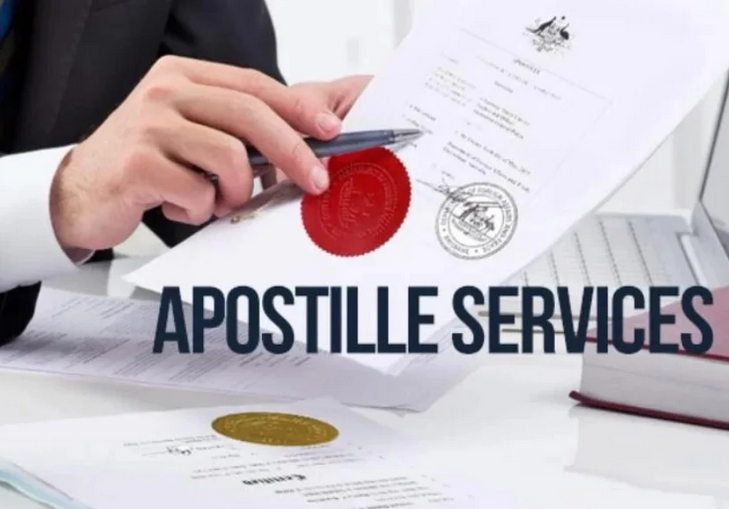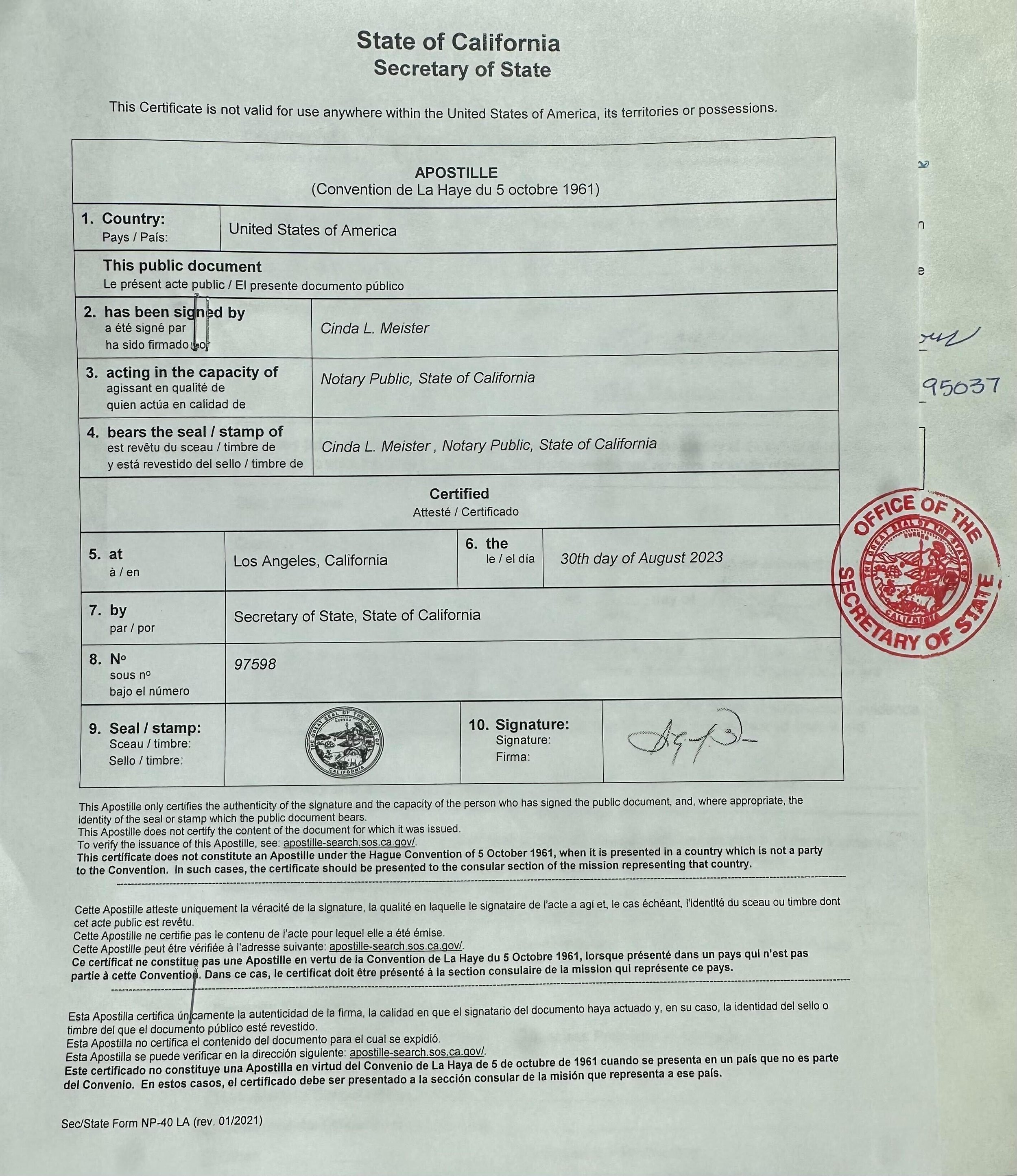Convenient Houston Texas Apostille Services-- Quick Turnaround Times
Understanding the Apostille Process: A Comprehensive Overview to International Record Authentication
Browsing the detailed landscape of worldwide paper authentication can be discouraging without a clear understanding of the apostille procedure. This guide thoroughly lays out the necessary actions, from identifying which files need qualification to submitting them for verification by the Competent Authority. Grasping the significance of an apostille and recognizing prospective risks, such as insufficient entries and language barriers, can dramatically simplify the authentication journey. What precisely defines an apostille, and why is it so essential for papers predestined for Hague Convention countries? These concerns develop the structure of our exploration into this vital legal procedure.
What Is an Apostille?
An apostille is an official qualification that verifies the credibility of a record for usage in one more country. This qualification, released by a marked authority in the country where the file originated, ensures that the record is identified as valid and legitimate in the worldwide field. The process of getting an apostille involves a number of steps, including the confirmation of the paper's signatures, seals, and stamps by appropriate governmental bodies.
The apostille functions as a worldwide acknowledged form of authentication, implemented by the Hague Convention of 1961. This treaty, officially known as the Hague Convention Eliminating the Demand of Legalisation for Foreign Public Papers, standardizes the procedure of document qualification among participant nations. The apostille itself is a standard certificate that contains particular information, such as the releasing authority, the native land, and the date of issuance.
It is essential to keep in mind that not all records are qualified for an apostille. Generally, public records like copyright, marital relationship licenses, court orders, and instructional diplomas receive this certification. Personal documents, such as contracts and contracts, might need registration and added actions to certify.
Significance of Apostille
Understanding what an apostille is sets the stage for valuing its significance in worldwide transactions. houston tx apostille. An apostille, basically a form of accreditation released by a designated authority, verifies the authenticity of a paper for usage in foreign nations that are signatures to the Hague Apostille Convention. This standardized procedure removes the need for additional legalisation by embassies or consulates, consequently streamlining international deals
It guarantees the reputation and approval of important documents-- such as copyright, marriage licenses, and academic diplomas-- across borders. For organizations, it helps with the smooth conduct of worldwide profession, mergers, and procurements by providing a trusted technique of document verification.
Moreover, an apostille boosts legal security and conformity. Governments and establishments can with confidence depend on the authenticity of documents birthing an apostille, mitigating the threat of fraudulence and misrepresentation. Thus, the apostille serves as a critical device in promoting global cooperation and trust fund. Its function in promoting efficient and secure global deals underscores its crucial worth in today's interconnected globe.
Papers That Require Apostille
When taking part in international deals or lawful matters, details papers usually require the verification provided by an apostille. This ensures their acknowledgment and acceptance in nations that are signatures to the Hague Apostille Convention. Typically, individual records such as copyright, marriage certificates, and fatality certifications require an apostille, especially when they are utilized for procedures like migration, marriage abroad, or worldwide probate issues.
Educational records see post are an additional category regularly requiring apostilles. Diplomas, transcripts, and academic documents commonly need this verification for purposes such as seeking additional education, work, or professional licensing in a foreign nation (houston tx apostille). This step guarantees that the files are acknowledged as genuine and valid
Lawful files, consisting of powers of lawyer, testimonies, and court orders, additionally commonly necessitate apostilles. Company papers such as certifications of consolidation, bylaws, and industrial contracts might require an apostille to help with international trade, develop international branches, or participate in cross-border lawful procedures.
Steps to Acquire an Apostille

Getting an apostille entails a multi-step procedure that makes certain the credibility and approval of your records in international countries. The preliminary step is determining which files require an apostille. houston tx apostille. Typical records consist of birth certifications, marital relationship licenses, academic transcripts, and corporate records
Once recognized, the file must be accredited by the appropriate issuing authority. After qualification, the file needs to be submitted to the marked Competent Authority in the file's nation of origin.
The entry process generally requires a finished application form, the initial paper, and a cost. Some jurisdictions might offer the choice of expedited handling for an additional fee. click for more Upon successful confirmation, the Competent Authority will certainly affix the apostille certificate to the record, his comment is here thereby validating its authenticity.
Usual Obstacles and Solutions
Browsing the apostille procedure can present several common difficulties that, if not appropriately resolved, might postpone or make complex paper verification. Each nation has details needs for the kinds of files that can be apostilled, and any type of variance from these can result in denial.
An additional usual obstacle is recognizing the varied handling times. Handling times can differ substantially in between countries and even between different areas within the very same nation. It is essential to account for these variations when preparing the apostille procedure to prevent unforeseen delays.
Additionally, language obstacles can present considerable challenges. Files in a foreign language often call for qualified translations, and any inaccuracies in translation can bring about more issues. Engaging a professional translation solution can alleviate this threat.

Conclusion
Understanding the apostille procedure substantially improves the efficiency of global record authentication. By comprehending the requirement of determining and accrediting required records, and navigating the submission to the Competent Authority, the procedure ends up being more manageable. Understanding of usual obstacles, such as insufficient submissions and language obstacles, further aids in stopping possible delays. Making sure documents are correctly apostilled facilitates their approval in Hague Convention signatory countries, thereby sustaining seamless global legal and administrative treatments.